The congressional hearing on Columbia University's response to antisemitism has now been adjourned.
"We're deeply disturbed by what we're seeing at Columbia, any of the things we've heard in today's hearing," US Rep. Virginia Foxx said.
By CNN's Matt Egan and Ramishah Maruf
By CNN's Ramishah Maruf
The congressional hearing on Columbia University's response to antisemitism has now been adjourned.
"We're deeply disturbed by what we're seeing at Columbia, any of the things we've heard in today's hearing," US Rep. Virginia Foxx said.
From CNN's Ramishah Maruf
US Rep. Ilhan Omar asked Shafik what the school's policies are for professors who harass students online. Shafik said one professor, Columbia Business School assistant professor Shai Davidai, is under investigation for harassment.
Davidai called Shafik a “coward” in a fiery speech last year criticizing the university president for failing to quiet “pro-terror” voices at the school.
The same professor has more than 50 complaints against him, Shafik said.
"As president, I'm used to being attacked, but attacking our students is unacceptable," Shafik said.
Columbia did not immediately respond to a request for comment.
Davidai said to CNN that he has never spoken against students by name, only "pro-Hamas" student organizations and professors.
"They're investigating me for the entire reason the entire reason this hearing was held in the first place. Columbia is investigating me for my social media tweets and only my social media tweets," he said.
By CNN's Ramishah Maruf
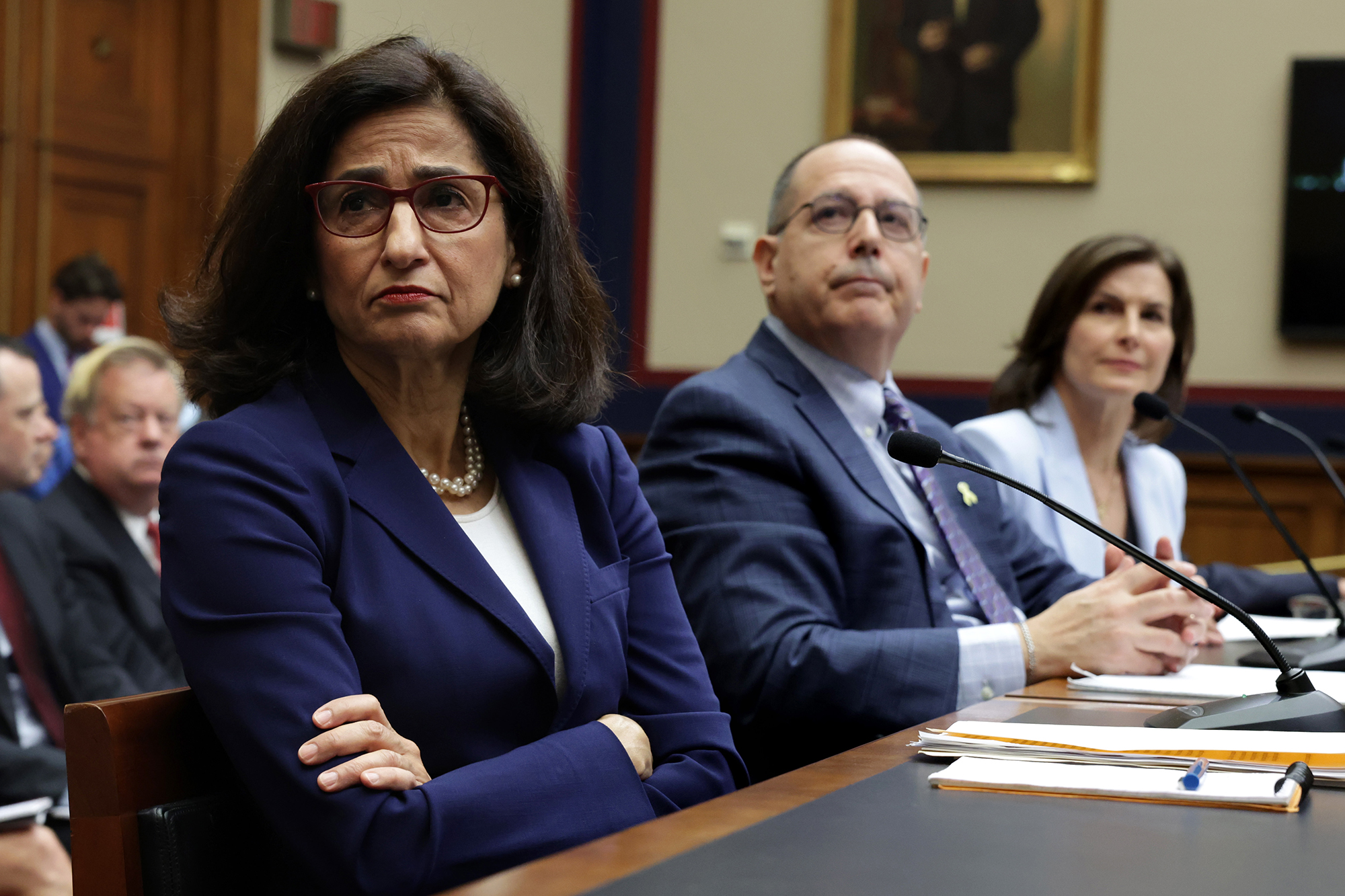
Shafik and David M. Schizer, the former dean of the Columbia University Law School and co-chair of the university’s task force combatting antisemitism, said a March article by the New York Times that said members of Columbia's task force could not settle on the definition of antisemitism is inaccurate but stopped short of calling it false.
"For me personally, any discrimination against people for their Jewish faith is antisemitism," Shafik said.
Shafik told US Rep. Lisa McClain she is "pretty sure" that the rest of the university's task force combatting antisemitism would agree with that definition.
Schizer's definition was more detailed.
"It's bias against Jewish people, which can manifest as ethnic slurs, stereotyping, Holocaust denial, double standards as applies to Israel, and antisemitic tropes," Schizer said.
From CNN's Matt Egan
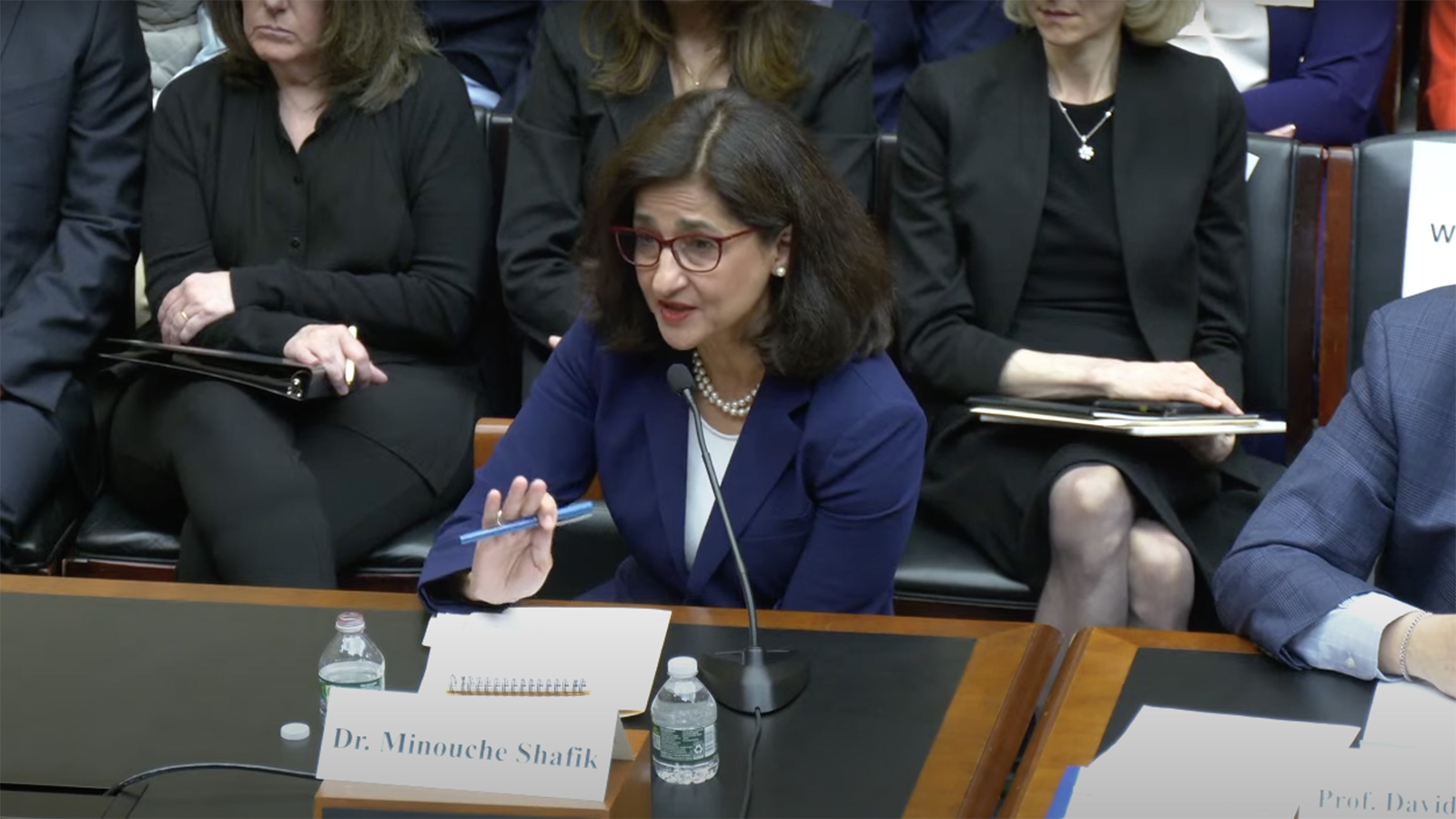
Columbia University President Minouche Shafik said the school is firing a professor who allegedly expressed support for Hamas on social media following the October 7 terror attack on Israel.
Rep. Elise Stefanik said Columbia hired Mohamed Abdou as a professor after the terror attack even though she said he posted support for Hamas, Hezbollah and the Islamic Jihad on October 11.
“I share with you your repugnance at those remarks. I completely understand that. On my watch, for faculty who make remarks that cross the line in terms of antisemitism, there will be consequences,” Shafik said.
Speaking specifically about Abdou, Shafik said: “He has been terminated.”
Shafik also said that Abdou is grading his students’ papers but will “never teach at Columbia again and that will be on his permanent record.”
Columbia did not immediately respond to a request for comment on when Abdou’s termination takes effect.
Shafik added that there are five instances of faculty who have either been removed from classrooms or dismissed.
From CNN's Lauren Koenig
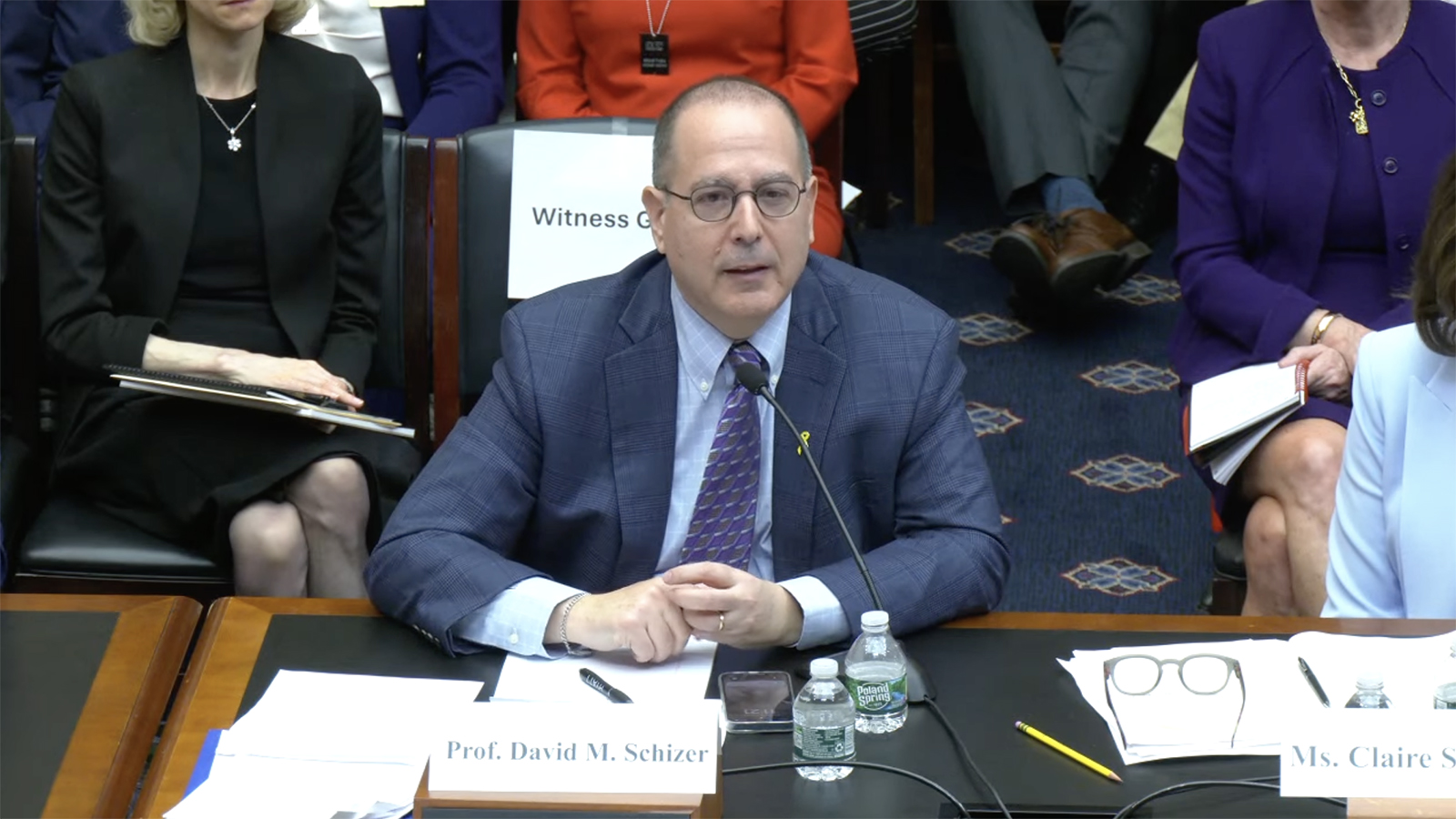
Former Dean of Columbia University Law School and co-chair of the university’s task force combatting antisemitism David M. Schizer drew on his personal experience with antisemitism in his opening statement to the House Education and the Workforce committee.
“A student wearing a shirt with an Israeli flag was pinned against the wall by a protester and told to keep f-ing running when he broke free,” Professor Schizer told the committee, “when I heard this, my first thought was of my grandfather.”
Schizer said his grandfather grew up in Ukraine, “and his grandfather was lynched in a pogrom.”
A few years later, he said, his grandfather “almost met the same fate.”
“A group of antisemitic thugs put my grandfather up against the wall and were about to shoot him, but he managed to get away,” he said.
Schizer said that the work of the task force combatting antisemitism “has not been easy.”
“There is a lot to do, and we aren’t yet where we need to be, but we are making real progress,” he said.
“Being a Zionist should not disqualify someone from a dance group or a theater production,” he said, adding, “this sort of pressure, signifying that Jews are only acceptable if they reject a core part of their religion and identity, well, it sounds like old fashioned bigotry to me.”
The task force issued a report to the university recommending four rules governing protests, which Schizer says the university is implementing, and that the task force plans to issue another report in May following additional listening sessions with students “to describe student encounters with antisemitism, discuss definitions of antisemitism, and recommend changes in orientation, student services and student groups.”
Schizer said the task force will issue more reports in the next academic year.
From CNN's Matt Egan
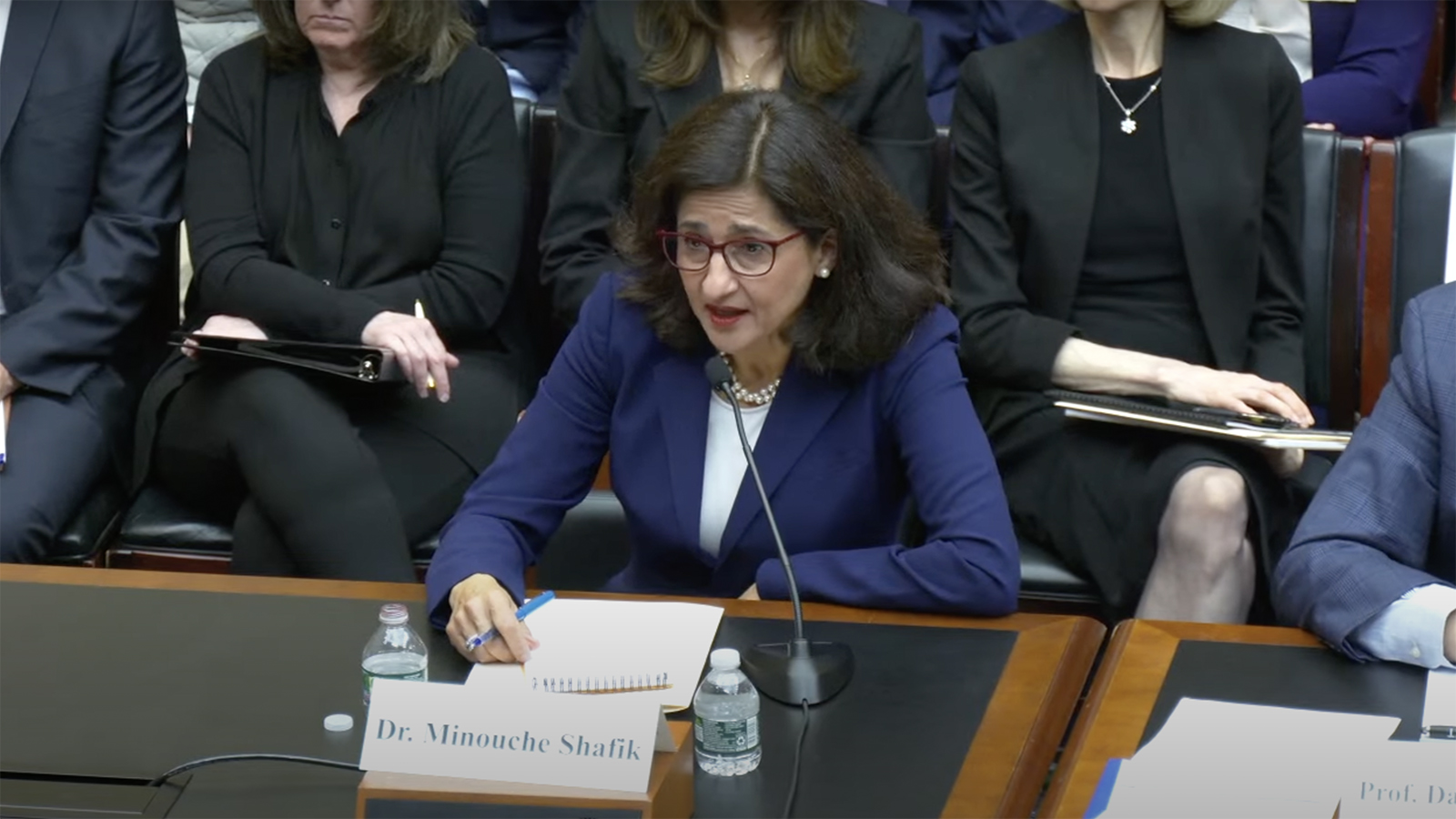
Columbia University President Minouche Shafik condemned a professor who praised the October 7 attack by Hamas on Israel.
“I do condemn his statement. I am appalled by what he said,” Shafik said in response to a question from Rep. Tim Walberg. “He has been spoken to.”
The day after the Hamas attack, Columbia professor Joseph Massad described the brutal terror attack as a “stunning victory” in an online article.
Shafik said Massad is no longer chairing an academic review committee at Columbia.
From CNN's Elisabeth Buchwald
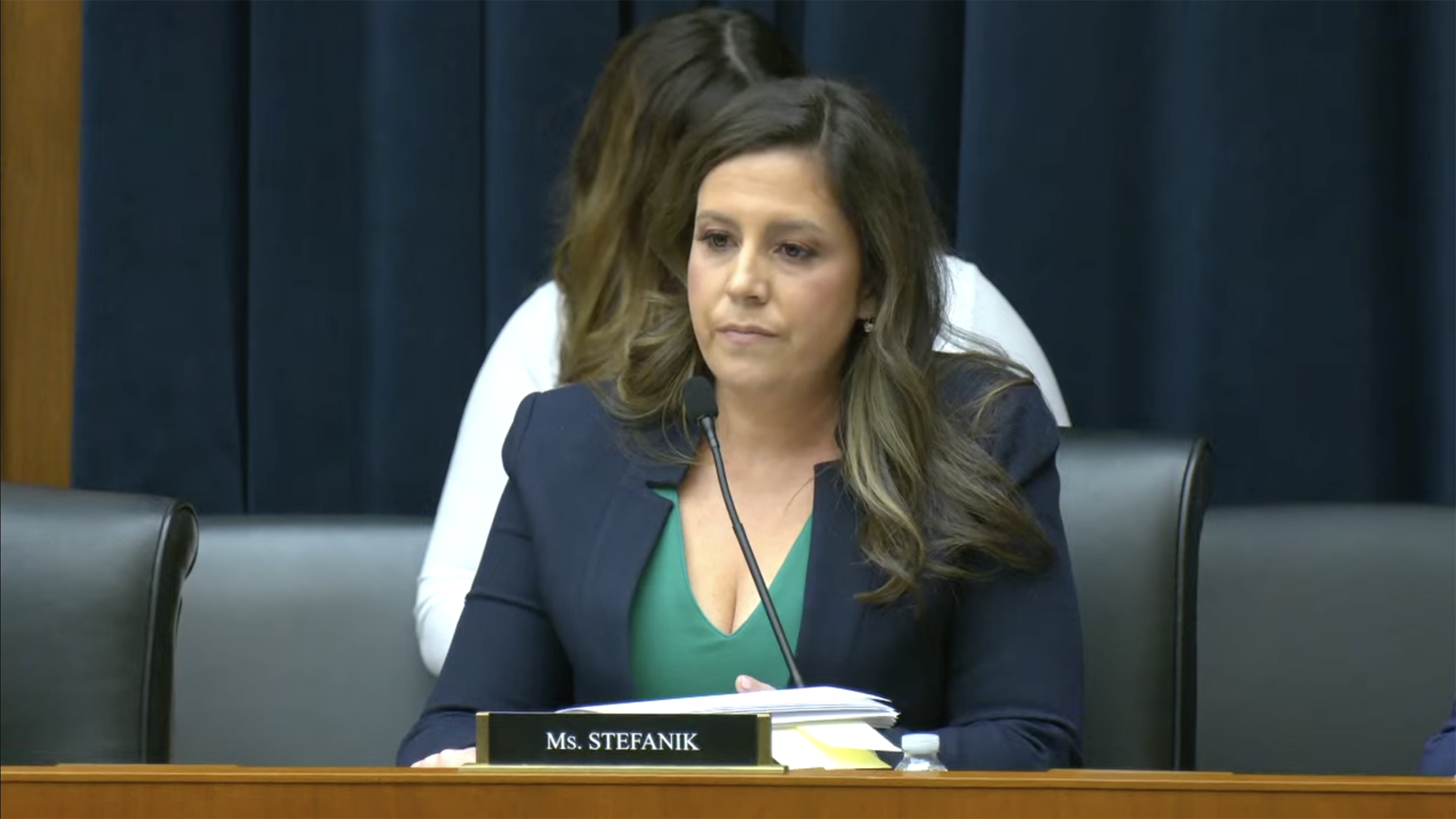
Republican Rep. Elise Stefanik called Columbia University's response to tenured professor Joseph Massad, who a day after the October 7 attack penned a piece online that labeled it "awesome," is unacceptable.
Columbia's president, Minouche Shafik, said Massad had been "spoken to" by members of his department of Middle Eastern, South Asian and African Studies. Shafik said she did not participate in those discussions.
She declined to say if any further disciplinary actions were taken but said he has "not repeated anything like that ever since." She confirmed Massad is still on the Columbia faculty but was unsure if he's currently teaching.
Massad is still listed as chair of the Academic Review Committee on a Columbia site. In a prior line of questioning Shafik said that "he is no longer chair of that committee and does not have a leadership role."
Stefanik later pointed out the site that still says Massad chairs the committee. Shafik replied that she would "like to confirm that" and she was "not sure" if he had been removed.
Columbia and Massad didn't immediately respond to CNN's request for comment.
David Greenwald, the co-chair of the board of trustees at Columbia, told Stefanik Massad's comments were "abhorrent" and he should be removed from the position.
From CNN's Matt Egan
All four Columbia officials testifying before Congress unequivocally stated that calls for the genocide of Jews violate the university’s code of conduct.
Rep. Suzanne Bonamici asked Columbia President Minouche Shafik, board co-chairs David Greenwald and Claire Shipman and David Schizer, co-chair of a task force on antisemitism, for a simple yes or no response. All four said “yes,” calls for the genocide of Jews would violate Columbia’s code of conduct.
The response offered a stark contrast to the lawyerly answers that university presidents provided during the December hearing before the same committee. That moment went viral, sparking an uproar that eventually contributed to the ousters of the presidents of Harvard and the University of Pennsylvania.
Of course, the Columbia officials had the advantage of having months to prepare for that question.
Days after the December hearing, Columbia issued a statement saying: “Calls for genocide against the Jewish community or any other group are abhorrent, inconsistent with our values and against our rules.”
From CNN's Matt Egan
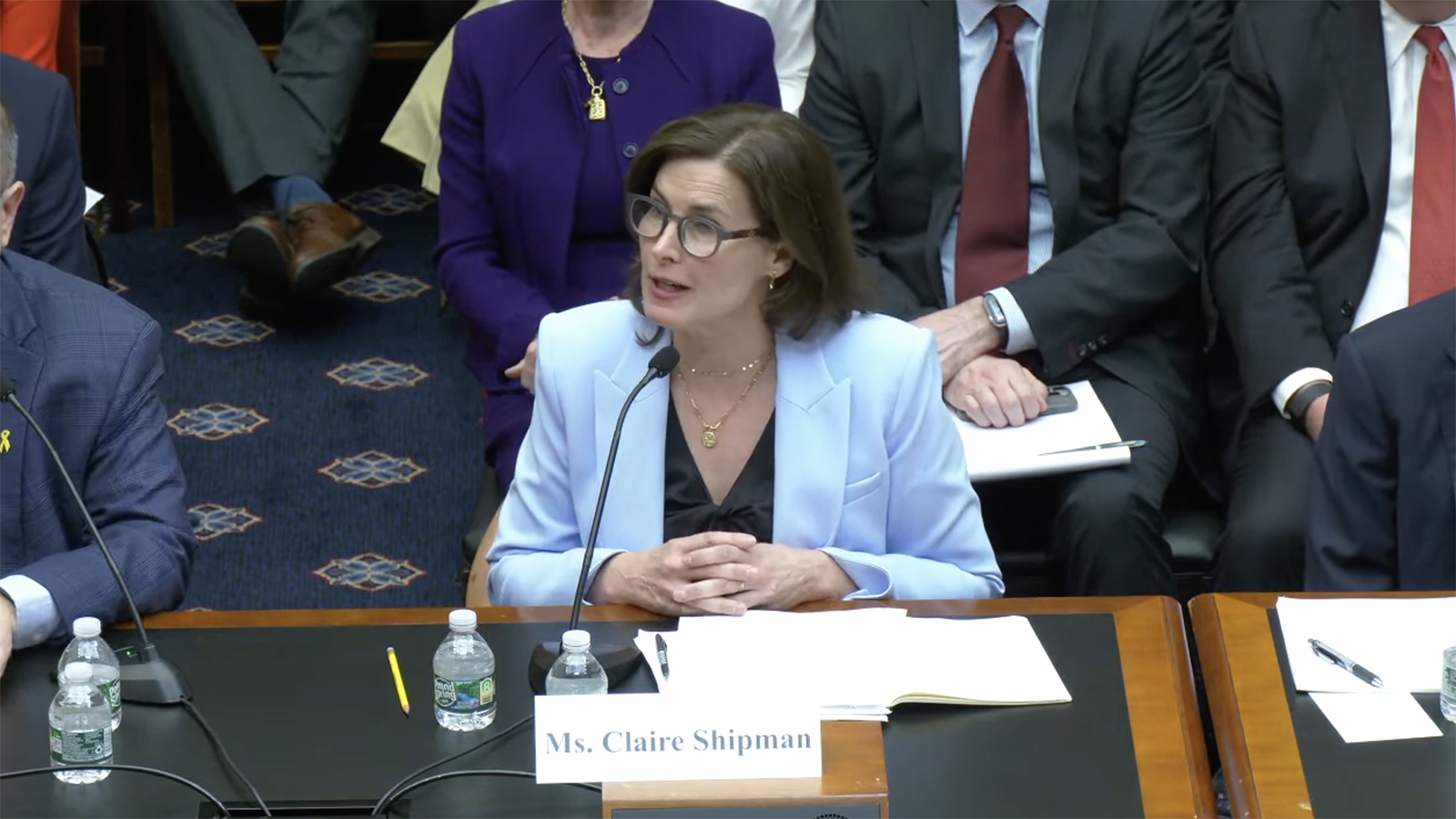
Claire Shipman, co-chair of Columbia University’s board of trustees, said it is “difficult and heartbreaking” to hear members of the university community feel unsafe.
“I feel this current climate on our campus viscerally. It’s unacceptable. I can tell you plainly that I am not satisfied with where Columbia is at this moment,” Shipman said. “As co-chair of the Board, I bear responsibility for that.”
The Columbia official noted that the university shut its gates for demonstrations and backed the decision to invite the New York City Police department onto campus for the first time since 1968.
“The last six months on our campus have served as an extreme pressure test. Our systems were not equipped to manage the unfolding situation,” Shipman said.
Shipman added that Columbia plans to continue to hold people accountable.
“We are far from done. I am outraged by the vile sentiments I continue to hear by those who ignore our rules,” she said.